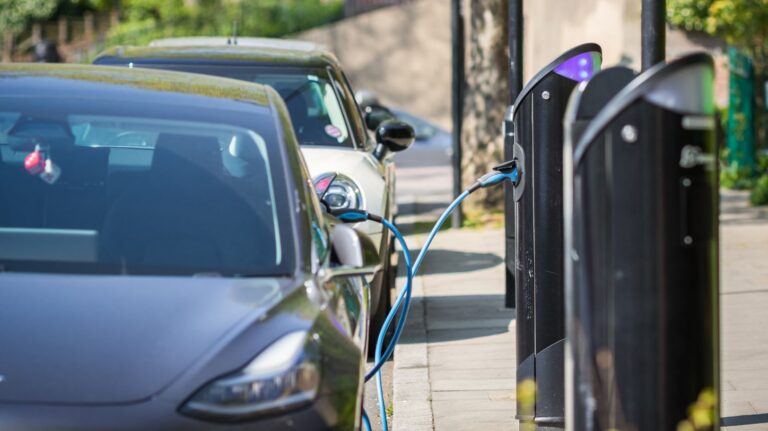The Office for Budget Responsibility (OBR) has published its annual report on the fiscal risks and sustainability of public finances, which predicts that forgone fuel duty payments resulting from increased electric vehicle (EV) uptake will cost the UK £13bn a year by 2030.
“In this, our second FRS, we focus on three specific risks: the rise in health-related inactivity in the labour market; the effect of higher gas prices on the demand for and supply of energy; and the effects of rising interest rates and high inflation on the UK’s public debt,” said Richard Hughes, Professor David Miles CBE and Andy King, the three members of the Budget Responsibility Committee (BRC).
The report outlined how turbulent this decade has been for public finances, highlighting both geopolitical tensions and the impact of the pandemic.
Discussing the 2050 net zero target, the OBR added that ‘public investments needed to support the decarbonisation of power, buildings, and industry could reach £17bn’ by 2030.
The publication also outlined the risks of the UK continuing to be dependant on 40% natural gas, rather than achieving decarbonisation by 2050, and cites the risk this creates by exposing the economy to the volatility of global wholesale gas markets. It commented that such an approach would represent ‘an ongoing fiscal risk’.
As part of its analysis on the impact of the energy market on the UK economy, the report points to recent efforts to encourage a clean energy transition as ‘rapidly eroding’ the £39bn per annum the UK government currently receives in tax revenues from petrol- and diesel-powered vehicles.
Though the UK’s decline in gas usage was, overall, less dramatic than other European counterparts in response to price hikes, the OBR commented that reduced demand for gas is expected to lead to an increased demand for durable goods to reduce future energy prices. Examples of this include home-heating appliances such as heat pumps, but also electric vehicles.
Despite the UK’s low international ranking for heat pump uptake, the country ranks highly in EV adoption, with the UK sitting ‘slightly above’ the European average and ‘well above’ some major advanced economies, including the US and Japan, according to the report.
However, absolute growth in EV sales slowed in 2022; some suggested reasons for this included lower petrol and diesel prices, increasing wholesale electricity costs and supply-chain issues.
As mandated by the Paris Agreement, the Climate Change Committee (CCC) is responsible for monitoring the progress made and risks to achieving the UK’s national ambitions (known as ‘nationally determined contributions’, or NDCs) around climate action.
Concerning the NDCs established for surface transport, also known as land transport, in 2021 the OBR’s report (then referred to as the Fiscal Risks Report) suggested that the EV transition would happen largely without substantial government investment.
However, the CCC’s most recent progress report highlights an increased risk of not meeting the 2030 NDC for surface transport, related to delays in establishing the zero-emissions vehicle (ZEV) mandate and low uptake of electric vans.
It also highlighted a lack of urgency in the government’s policy framework, the need to stay firm on current commitments and that the UK should attempt to retake a leading role on the international stage.





